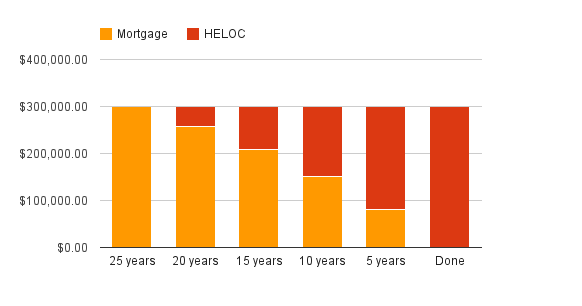It s in your interest to know the deduction rules for borrowing The Globe and Mail
Post on: 18 Июль, 2015 No Comment

Investing
My father doesn’t resent Grandpa’s approach. The only thing Dad wasn’t thrilled about was the fact that he couldn’t deduct the interest paid to Grandpa. Dad, the only reason you couldn’t deduct the interest was because you used the borrowed money to buy an Elvis clock, a bean bag chair and a lava lamp.
I then shared with my father the rules around deducting interest.
You’re generally allowed to deduct interest on borrowed money used to earn income from a business, or property. Income from property includes interest income, dividends, rents and royalties. So, if you’re using borrowed money to generate these types of income, you should be able to deduct your interest.
What about capital gains? Capital gains are not considered to be income, so borrowing to generate capital gains alone won’t cut it. Now, if you’re using borrowed money to, for example, invest in common shares and you expect capital gains over time, and you also expect dividends, then your interest will generally be deductible. Just beware of investing borrowed money in products that may be designed to generate capital gains and not income of any type.
Your interest costs don’t have to be actually paid in the year to be deductible, but the interest must be legally payable in respect of the year in which you’re claiming the deduction. I should mention that compound interest (that is, interest on your interest), however, is not deductible until the year it’s actually paid.
It’s also worth noting that the requirement to deduct interest is that the borrowed money be used to generate income, but not necessarily profits. That is, the federal interest deductions you claim over time might be higher than the income you actually earn from the borrowed money. Not a problem. This position was confirmed by the Supreme Court of Canada in the Ludco decision in 2002, and again by the Canada Revenue Agency in its Interpretation Bulletin IT-533, in paragraph 10.
The rules are a little different in Quebec, where the interest you deduct in any given year cannot exceed the investment income you earn in that year (although investment income includes the taxable half of capital gains in this case). Excess interest costs that can’t be deducted in Quebec in a given year can be carried back up to three years or forward indefinitely to be deducted against investment in future years in that province.
If you want some good bedtime reading (perhaps because you’re having trouble sleeping), print off a copy of the CRA’s Interpretation Bulletin IT-533. It details the taxman’s view of interest deductibility.
Some nuances

You’ll generally be allowed to restructure your affairs so that your borrowing is connected to earning income. Suppose you have, for example, a home mortgage (assume interest is not deductible) on one hand and cash or liquid investments on the other. You could use that cash or liquidate the investments to pay down your mortgage, then borrow against the new equity in your home to replace those investments. You are now borrowing to earn income, which should give rise to an interest deduction.
What about refinancing? If you use borrowed money to repay a previous loan, the new loan is deemed to be used for the same purpose as the original loan. So, if you were able to deduct interest on the first loan, this should continue with the new loan.
What about business owners? If you borrow money and use those proceeds to make interest-free loans to your corporation, you’ll generally be entitled to deduct the interest costs. You see, interest on money borrowed to make interest-free loans can be deductible if it increases your earning capacity. Similarly, if you borrow to make a capital contribution to, for example, a partnership, your interest should generally be deductible.
Finally, the type of security you pledge on a loan doesn’t determine deductibility. For example, borrowing money using an investment portfolio as collateral will not create an interest deduction if you use the loan proceeds for a non-income-producing purpose. It’s the direct use of the borrowed funds that matters.
Special to The Globe and Mail














